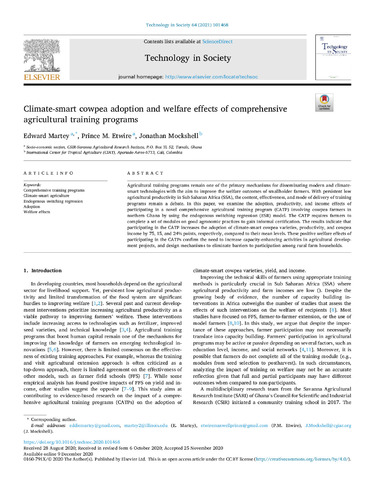Climate-smart cowpea adoption and welfare effects of comprehensive agricultural training programs
Agricultural training programs remain one of the primary mechanisms for disseminating modern and climate-smart technologies with the aim to improve the welfare outcomes of smallholder farmers. With persistent low agricultural productivity in Sub Saharan Africa (SSA), the content, effectiveness, and mode of delivery of training programs remain a debate. In this paper, we examine the adoption, productivity, and income effects of participating in a novel comprehensive agricultural training program (CATP) involving cowpea farmers in northern Ghana by using the endogenous switching regression (ESR) model. The CATP requires farmers to complete a set of modules on good agronomic practices to gain informal certification. The results indicate that participating in the CATP increases the adoption of climate-smart cowpea varieties, productivity, and cowpea income by 75, 15, and 24% points, respectively, compared to their mean levels. These positive welfare effects of participating in the CATPs confirm the need to increase capacity-enhancing activities in agricultural development projects, and design mechanisms to eliminate barriers to participation among rural farm households.

